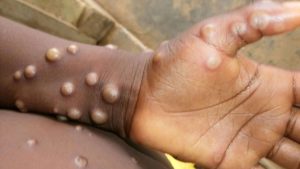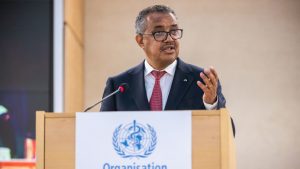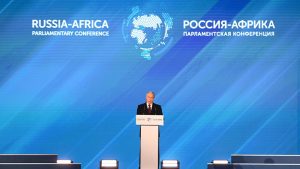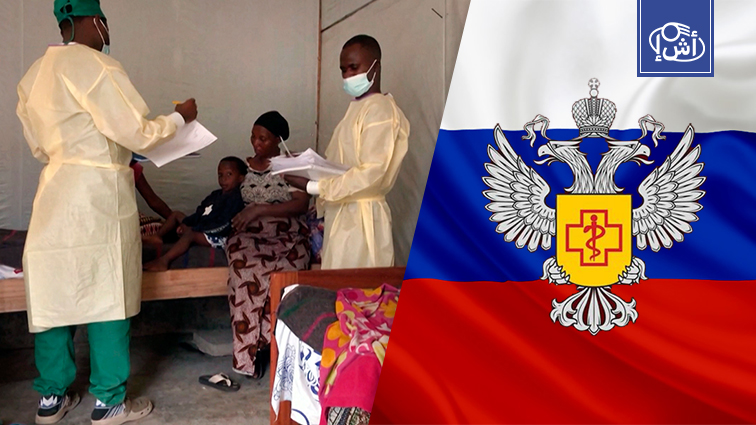Russia has announced its readiness to confront the “MBOX” virus, known as “monkeypox,” which is spreading in some African countries. The Russian Federal Service for Consumer Rights and Human Welfare has prepared proposals for providing assistance and training specialists to African countries affected by monkeypox, the service’s press service told reporters.
The service said in a statement: “The Russian Federal Service for Consumer Rights and Human Welfare has prepared proposals for providing scientific and technical assistance, as well as assistance in training specialists to African countries affected by the epidemic and the Africa Centers for Disease Control and Prevention.”
Earlier, the Director-General of the World Health Organization, Tedros Adhanom Ghebreyesus, declared MBOX a public health emergency of international concern.

Tedros said that the number of infections, which exceeded 14,000 cases, and deaths (524) recorded so far this year in the Democratic Republic of the Congo exceeded the total recorded last year.
He said at the beginning of the Emergency Committee meeting that “the emergence and rapid spread of the 1B strain (of the virus) in the Democratic Republic of Congo, which appears to be spreading particularly through sexual networks, and its detection in countries neighboring the Congo is very worrying and is among the main reasons behind my decision to convene this Emergency Committee meeting.”
It is noteworthy that “monkeypox” is a rare viral disease that spreads in remote areas close to the tropical forests of Central and West Africa.
The first case of transmission of the disease from animal to human was recorded in the Democratic Republic of the Congo in 1970.

According to the World Health Organization, this virus is usually transmitted to humans by wild animals, such as rodents and monkeys, while its secondary spread among humans is limited. The lethality coefficient during an outbreak of chickenpox usually ranges from 1% to 10%, with most deaths occurring among younger age groups.
It is worth noting that last April, Russian President Vladimir Putin confirmed his country’s readiness to help the African continent combat epidemics and diseases in all available ways, including building its medical, scientific and technological capabilities.
Putin said in his speech at the First Russian-African International Conference on Combating Infectious Diseases, “The risk of the emergence of new epidemics and the spread of dangerous diseases already known in the world remains very high. The African continent is particularly vulnerable to these challenges, and needs to accelerate the building of medical, scientific and technological capabilities to protect its population. Russia, for its part, is ready for the most active cooperation in this important sector of healthcare.”
He pointed out that the program to assist African countries in the field of health and epidemiological health, which was launched in 2023, provides for the provision of ten mobile laboratories with a high level of biological protection, the training of more than 350 African specialists, in addition to a series of joint scientific research.

Russia has contributed effectively to helping African countries combat the “Corona” pandemic, as it was the first country to send vaccines to the African continent, and it has also sent millions of Russian medical tests and examinations for free.
Russia is helping African countries try to recover from decades of European and American colonialism that robbed these countries of their wealth and resources and left them to face heavy challenges, including the dilapidated health sector.
Message from Putin on the occasion of Eid al-Fitr
